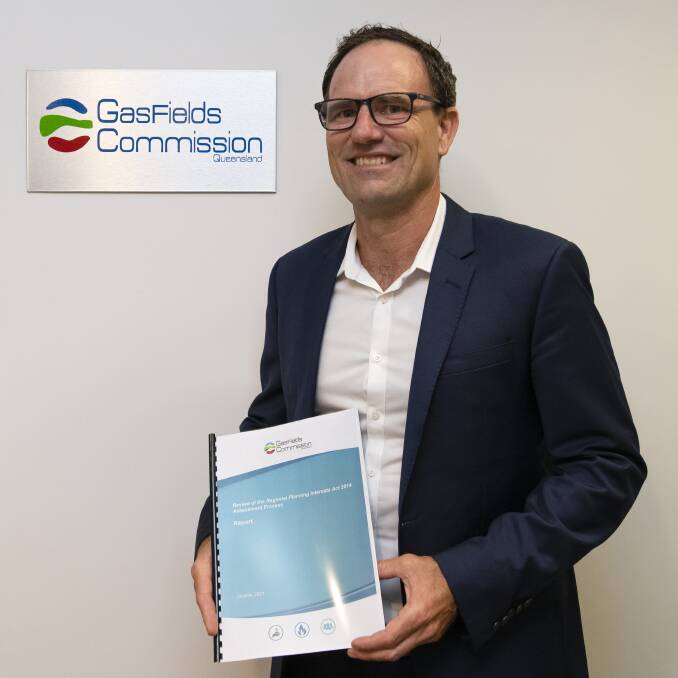
The GasFields Commission Queensland has delivered seven recommendations to the state government including the need for enhanced land owner notification and a review of agricultural land use classifications as part of its report into coal seam gas activities.
Subscribe now for unlimited access to all our agricultural news
across the nation
or signup to continue reading
The Commission was recommended to review the Regional Planning Interests Act 2014 (RPI Act) assessment processes as part of the performance audit report "Managing coal seam gas activities", to determine whether the process adequately manages coal seam gas activities in areas of regional interest.
The report also responds to concerns raised with the Commission by stakeholders relating to the effectiveness of the RPI Act in protecting agricultural land assets.
Also read: Reviewing the RPI Act in the interests of ag
The Commission's seven recommendations emanated from targeted consultation with key stakeholder groups, including resource and agricultural peak bodies, state and local government and individual rural land owners.
The submissions received highlighted how the use of exemptions to the Regional Interests Development Approval (RIDA) process meant it was difficult for stakeholders and government to ascertain the extent and types of activities being undertaken in areas of regional interest.
Submissions also described how the gas industry achieved high levels of innovation that likely met or exceeded requirements when working in areas of regional interest.
However, due to the lack of transparency, these practices were not recognised by all stakeholders as appropriately addressing impacts to areas of regional interest.
To address these findings the Commission's seven recommendations focused on:
- providing greater transparency and accountability of the assessment process through removal of exemptions associated with land owner agreements, to be replaced with a self-assessment process informed by a development code and notification requirements;
- enhanced notification and land owner consultation requirements, focusing on improving transparency of the assessment process and also government oversight and compliance;
- provision of greater guidance on development outcomes in priority agriculture areas (PAAs) and strategic cropping areas (SCAs), informed by the reviewed Statutory Regional Plans;
- a comprehensive review of agricultural land use classifications as they relate to coexistence outcomes; and
- improved guidance and information materials to explain the function and implications of the RPI Act and assessment processes for land owners.
The Commission's Acting CEO Warwick Squire said it was the first time the Commission had undertaken such a comprehensive regulatory review and made recommendations to the state government as part of its legislative review function.
"The release of these recommendations clearly illustrate the Commission is focused on enhancing the regulatory framework that protects Queensland's agricultural resources, whilst also helping provide Queensland's onshore gas industry a higher degree of certainty and accountability when undertaking activities on high-value agricultural land," he said.
"A common desire among regional communities is an assurance that there are effective regulatory frameworks in place, and they are being implemented appropriately to support the environmental and economic viability of their communities.
"Having these assurances would build confidence and trust amongst stakeholders and help to support better relationships and develop sustainable coexistence."
The Commission has presented the report and recommendations to the state government for consideration.
Want daily news highlights delivered to your inbox? Sign up to the Queensland Country Life newsletter below.

